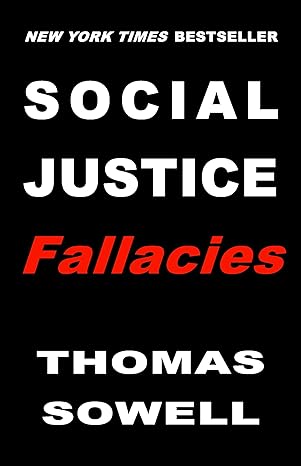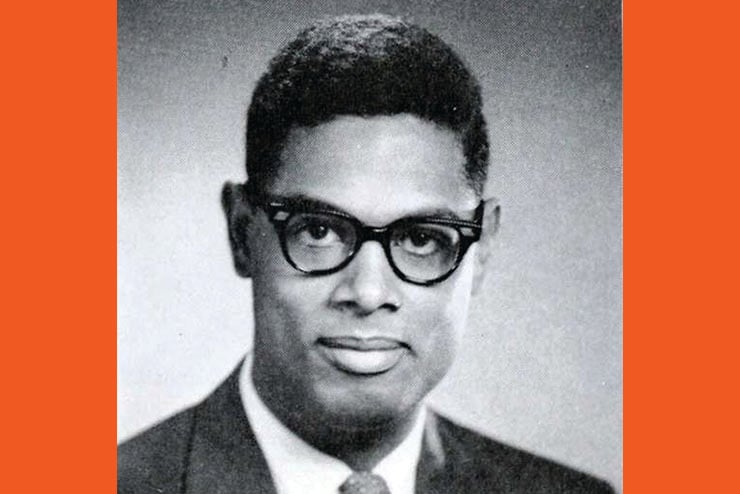
Social Justice Fallacies
by Thomas Sowell
Basic Books
224 pp., $17.99
I observe with envy, as an underproductive scribbler, that Thomas Sowell is not so much a writer as a book-producing machine. He has generated close to a book every year for more than 40 years now. That kind of productivity is astonishing and exceedingly rare. Unfortunately, it’s virtually impossible for someone to produce that many words without repeating himself.
This is not a dig at Sowell specifically. No author has enough original ideas that are of genuine interest and novelty to make dozens of books equally worthy of attention. Sowell has done what only a few have, which is to have given birth to a small number of books of genuinely enduring importance. The Economics and Politics of Race, A Conflict of Visions, The Vision of the Anointed, The Quest for Cosmic Justice, and Intellectuals and Society all contain compelling analyses of the political, cultural, and economic nature of contemporary human societies. His place in the right’s intellectual pantheon is assured.
His perspective is that of a libertarian, as he has often qualified himself. He is not a consistent cultural conservative and he is certainly not a paleoconservative. That means he misses things of interest to those of us on the paleo-right.
Before looking at some of those missing things in his latest, I happily note what is praiseworthy here. Though his latest book offers precious little that is new in his corpus, it gives us remixes of established hits. Several of those are so important that one can scarcely hear them too often.
The foremost of these has to do with his critique of the propensity of the intellectual classes to pontificate on all matters under the sun, even given the limited scope of the expertise of any real expert. “Intellectual omnicompetence” is a dangerous thing indeed. “Stupid people,” as Sowell puts it, “can create problems, but it often takes brilliant people to create a real catastrophe.”
He cites his mentor Milton Friedman on the “corrupting” way in which certain awards, such as the Nobel Prize, serve as a method for instantly crowning a new omnicompetent expert. Such a person is then free to talk in public about anything he likes and can be confident of being taken seriously by many, however patently absurd and uninformed by reality his views might be. Elsewhere, Sowell gives an empirical example of the phenomenon from a biographer’s description of John Maynard Keynes:
He held forth on a great range of topics, on some of which he was thoroughly expert, but on others of which he may have derived his views from the few pages of a book at which he had happened to glance. The air of authority was the same in both cases.
The widespread human disease of hubris and overconfidence is particularly acute in those with high formal educational achievements. This fact needs to be more widely known, more thoroughly studied, and more effectively combatted. Are there any reliable methods we might use in the training of these people to better ensure that, alongside their expertise, they are simultaneously equipped with intellectual humility? Their role model might be Socrates, who famously recognized that he might be superior to other thinkers, but only insofar as he was more aware of the limits of his knowledge.
It may be that no such method exists. But more open reflection on the phenomenon of expert hubris and its dangers would perhaps equip more of us with a higher level of immunity to the extravagant claims of the unrestrained members of that class.
An economist, Sowell is strongest when he is dealing with economic facts that challenge the druthers of the elite social justice cadres. His chapter on “Chess piece fallacies” is another slight alteration of earlier riffs that bears repeat listening. The economic world does not consist of chess pieces that can be moved at will to produce precisely the desired outcomes. The relationships of the pieces are in constant flux. As they are independent human agents, the pieces themselves can do things in reaction to engineering efforts that confound the intentions of the engineers.
For example, Sowell describes the contradictory economic effects of minimum wage laws, which result in greater unemployment for the lowest-paid workers. The redistribution of income through increasing the taxation of the economic elite is another compelling example, as it inevitably backfires by reducing the total amount of resources available to redistribute.
Inequalities are the morbid obsession of the social justice cadres. They predictably talk about them in ways distanced from careful analysis. Blacks are denied home loans more than whites. They score lower than whites on standardized test scores. They are punished more in schools. Obviously, this is because of white supremacy, say the radicals. But wait, says Sowell: When you add in Asians as a comparative class, the results are intriguing. Whites are denied home loans more often than Asians. They score lower on standardized tests than Asians. They are punished more in schools. Just how inept is the white supremacist system whites have built if Asians are surpassing their position atop all hierarchies?
The true causes of inequalities are often close to infinitely complex in their origins and makeup. In more cases than we like to admit, we are still largely ignorant of those causes. In many cases, even when we suspect we know the causes, it is nonetheless unclear what we could do to change the outcomes.
For example, we know that in five-child families that produce National Merit Scholarship finalists, more than half of the cases occur in firstborn children. Only about one in 20 of those finalists are the fifth-born. This is a patent inequality caused by the crude facts of birth order, which consists of a vast complex of natural, environmental, and purely cultural causal factors. The realist looks at this and says to himself, with a resigned shake of the head, “Such is the way of the world.” The social engineer burns with the desire to bend nature into the shape of his god, Equity. The destructive paths that such efforts can take are as large as the number of causes involved.
I’ll mention just two major blind spots in Sowell’s perspective, both in evidence in this book.
First, like most advocates of libertarian philosophical principles, Sowell has great faith in the productive outcomes that will inevitably follow from wide freedoms for the common man. He attacks Woodrow Wilson’s advocacy for increasing the authority of experts over “the many, the people [who are] selfish, ignorant, timid, stubborn, or foolish.” His point would be compelling if we were talking about the level of competence and practical wisdom of the American citizenry under Wilson. But in 2024 we are talking about a different “many,” with a vastly different set of basic predispositions and values.
Today, a significant and growing portion of our society sits sullenly in every moment of its leisure time (and even surreptitiously during much of the time it is supposed to be at work) watching TikTok videos. In those videos, stupidity and depravity of a stunning vulgarity are indisputable. In many of them, tattooed young men and half-dressed young women chant moronic and illiterate lyrics while waving stacks of bills and bobbing and weaving like animated dummies. The value system of that blithering and amoral subclass has almost nothing in common with that of the American public of Wilson’s time. It is far from clear that more, freer decision-making power as to how to spend their time for these individuals will lead to productive social outcomes.
The laissez-faire mechanisms Sowell and others of his intellectual tribe so unqualifiedly admire can only be reliably predicted to yield positive outcomes when the cultural soil in which they are rooted is suitably fertile. Pure libertarian economics has no answers as to what would need to be done to make the barren cultural ground of contemporary America cultivable again.
The question of culture per se is not altogether absent from Sowell’s work, but religion is a more glaring absence in his analytic lens. Effective thinkers on the right need not themselves be men of faith. But they must understand better than Sowell does the vital role of religion as cultural cement of any morally well-functioning society.
Second, Sowell assumes the outlying position of blacks on the intelligence distribution curve, and with respect to certain negative behavioral variables, is purely a cultural and environmental fact. He believes an adjustment of a purely cultural nature would be enough to correct most of the demonstrable deficits of the black underclass. The truth is, we do not know this to be so. And there is evidence to suggest that the differences are not entirely amenable to such means of adjustment. Sowell’s theoretical predilection tends to make him more optimistic about the possibilities of significantly altering existing patterns of group inequalities than those who believe differences in populations might be more profoundly rooted.
Thomas Sowell is, I repeat, repetitive, and many of his books read very similarly. Despite its brevity (130 pages of large-font text), this one, too, contains much his readers will recognize. It is useful to have the important ideas of Sowell’s oeuvre reiterated from time to time. But this frequency, in the form of a new book that is not really all that new, is overkill.

Leave a Reply